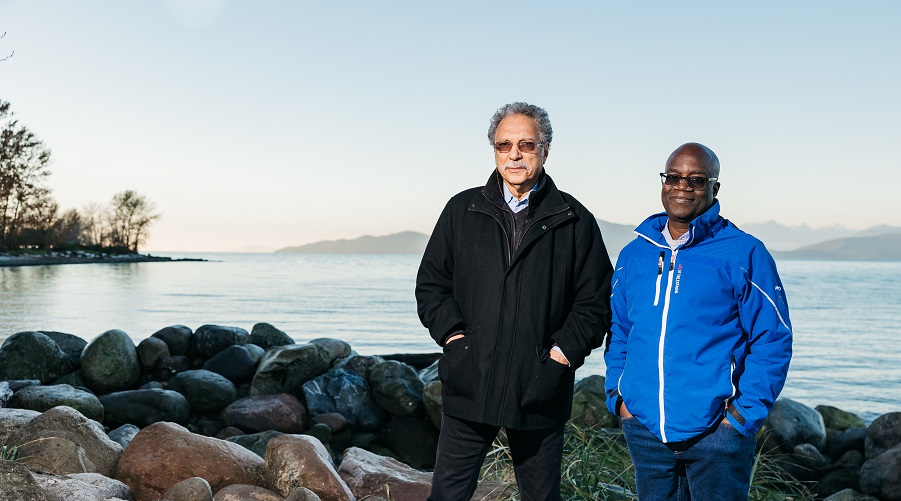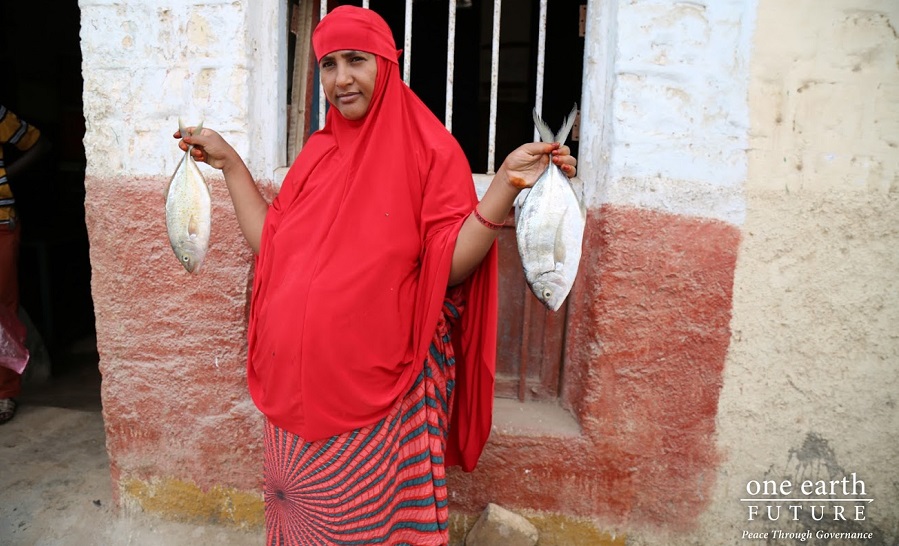The Africa-UBC Oceans and Fisheries Visiting Fellows Program is pleased to announce the selection of its inaugural laureates: Dr. Cynthia A. Adinortey (Ghana) and Dr. Antony Otinga Oteng’o (Kenya).
Tag: Africa
UBC researchers launch Africa-UBC Oceans & Fisheries Visiting Fellows Program
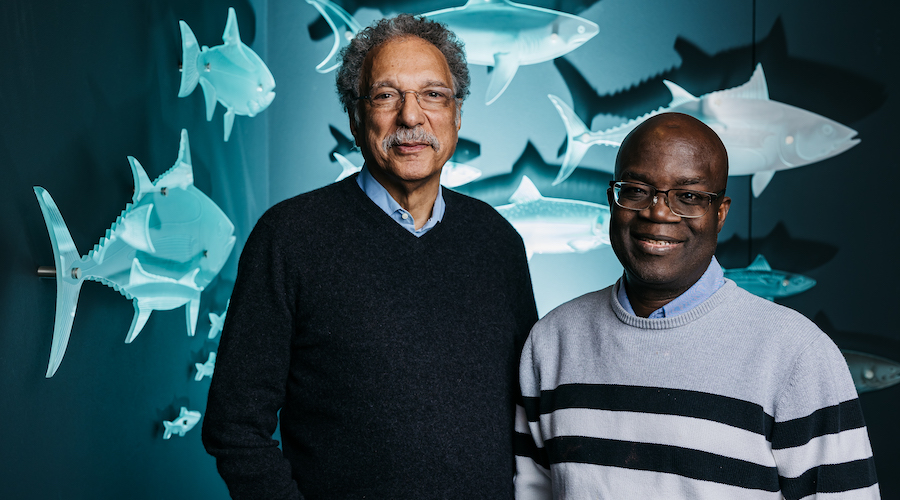
Dr. Daniel Pauly and Dr. Rashid Sumaila have launched the Africa-UBC Oceans & Fisheries Visiting Fellows Program. Photo by Kim Bellavance, Tyler Prize.
University of British Columbia researchers Dr. Rashid Sumaila and Dr. Daniel Pauly have launched the Africa-UBC Oceans & Fisheries Visiting Fellows Program, whose goal is to inspire exceptional young African researchers to develop ocean and freshwater sustainability solutions.
The fellowship is aimed at early-career academics from sub-Saharan African universities and research institutes who are interested in engaging with leading researchers at UBC’s Institute for the Oceans and Fisheries to facilitate diverse, equitable, mutually beneficial research collaborations.
As fishing effort grows, catches decline in the Mozambique Channel region
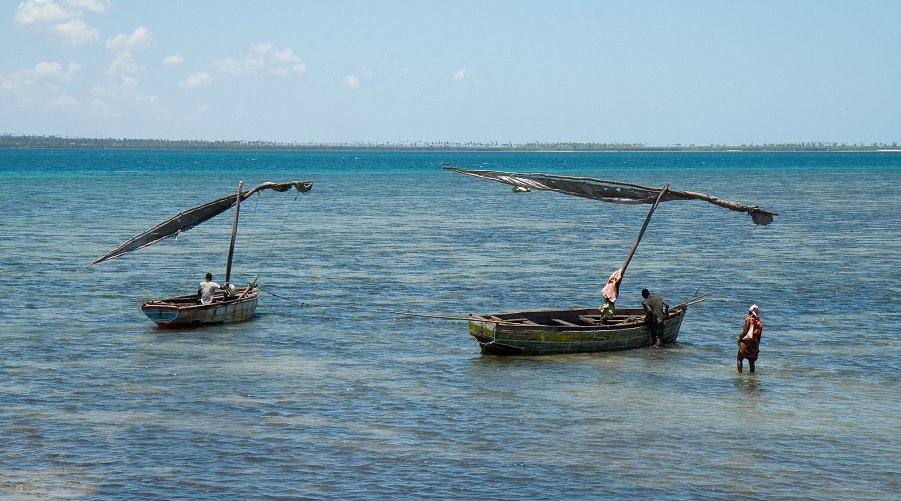
Traditional fishing pirogue in Madagascar. Photo by Jonathan Talbot, World Resources Institute, Flickr
Substantial growth in the number of motorized vessels operating in the Mozambique Channel region between East Africa and Madagascar in the past 65 years has led to a 60-fold increase in effective small-scale fishing effort and a 91 per cent decline in Catch Per Unit of Effort (CPUE).
Declining trend in fisheries catches threatens food security in African coastal communities
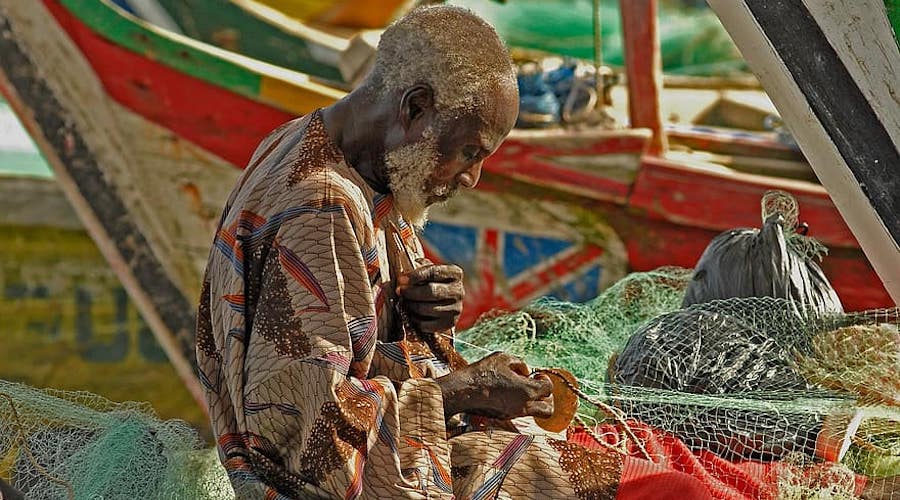
Ghanaian fisherman. Photo from Pikist.
Fish catches in Africa have reached a peak and, in many cases, have moved into a declining trend that threatens the food security and economic development of coastal areas.
A new study by researchers at the University of Western Australia, the University of British Columbia and Ecotrust Canada analyzed fishery yields in the seven Large Marine Ecosystems or LMEs that surround the African continent and found that most fisheries in the region rely on overfished resources.
Somali fisheries urgently need better data
In order to back government efforts to overcome the likely legacy effects of illegal fishing and piracy, stakeholders of Somali fisheries should emphasize improvements to their catch data, a new study finds. The paper, recently published in Marine Policy, also reveals that the amount of fish taken out of the country’s waters over the past six decades was 80 per cent higher than officially reported.
The paper, produced by scientists with the Sea Around Us at the University of British Columbia, the Sea Around Us – Indian Ocean at the University of Western Australia, One Earth Future’s Secure Fisheries program and the Swedish University of Agricultural Sciences, shows how the lack of proper oversight, monitoring and control in years prior to the establishment of the new Federal Government in 2012 allowed for industrial foreign vessels to exploit Somali marine resources or to operate under dubious licenses.


